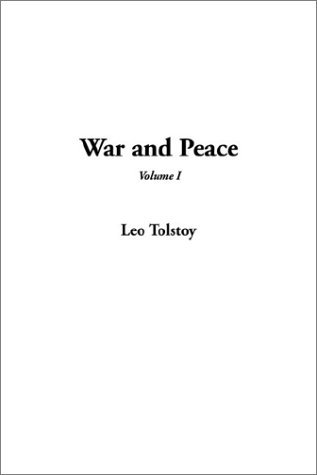
Война и мир. Том 2/4
Book Description
Amidst the thunderous clash of empires and the heartbreak of forbidden love, 'Война и мир. Том 2/4' delves deeper into the lives of its unforgettable characters. Lives intertwine as the specter of war looms, testing loyalty and stirring ambition. Each choice echoes through the corridors of history, where honor battles greed and sacrifice weighs against survival. As friends become foes and the power of destiny unravels, can love endure the chaos of a world at war? Will hope flicker amid despair, or will the flames of conflict consume everything they hold dear? The fate of nations hangs in the balance.
Quick Book Summary
In "Война и мир. Том 2/4", Leo Tolstoy deepens his exploration of Russian society as the tides of Napoleon’s invasion continue to reshape the lives of aristocrats and commoners alike. Characters like Pierre Bezukhov, Andrei Bolkonsky, and Natasha Rostov face pivotal personal dilemmas, balancing desires with growing responsibilities to their families and nation. Love, ambition, and identity are challenged as the horrors of war come closer to home, testing relationships and moral convictions. Tolstoy intricately portrays the struggle between individual longing and the demands of history, weaving together grand battles and intimate conversations. The second volume amplifies the emotional and philosophical stakes, drawing readers further into the turbulent era’s complex web of fate, hope, and despair.
Summary of Key Ideas
Table of Contents
Impact of War on Personal Identity
Pierre Bezukhov undergoes significant transformation as he searches for purpose amid France’s advance on Russia. His philosophical musings intensify, reflecting the turmoil of a nation at war. Disillusioned with aristocratic society and his own privileges, Pierre becomes increasingly engaged with his estate’s management and the broader Russian cause. Events force him to reconsider his affiliations and role in both societal and patriotic efforts, symbolizing the search for meaning as familiar societal structures face unprecedented strain.
The Complexity of Love and Relationships
Andrei Bolkonsky returns disillusioned from the front, his experiences with death and loss altering his outlook on life. Personal tragedy redefines his relationship with power, status, and love. His interactions with his family, and burgeoning affection for Natasha Rostov, illustrate the restorative potential of love amidst despair. However, Tolstoy doesn’t idealize romance, revealing how external circumstances and inner turmoil can render even the strongest bonds vulnerable to destruction.
Moral Choices Amidst Chaos
Natasha Rostov’s journey is marked by emotional growth and crisis. Her youthful innocence encounters harsh realities when her romance with Andrei is interrupted by social baggage and bitter misunderstandings. Natasha’s impulsive decisions lead to heartbreak and disgrace, reflecting the broader theme of innocence threatened by historical forces. Through her, Tolstoy explores forgiveness, the longing for redemption, and the interplay between youthful passion and the maturation demanded by adversity.
Destiny Versus Free Will
The specter of war becomes ever more intrusive, affecting all characters regardless of status or ambition. The nobles’ illusions of stability crumble as French forces approach, forcing existential decisions in the face of destruction. Ordinary people, too, become actors in this historical narrative, their daily struggles mirroring the greater drama of a nation fighting for survival. Spiritual questions—about fate, duty, and the possibility of personal happiness—permeate decisions large and small, exploring the tension between destiny and agency.
Tolstoy’s narrative structure intertwines intimate drama with grand historical canvas, pondering whether individuals shape their destinies or are shaped by impersonal forces. Each character’s arc serves as a meditation on sacrifice, loyalty, and resilience. The second volume, rich with psychological depth and philosophical inquiry, illustrates how the flames of war test and refine every aspect of human character, raising timeless questions about loyalty, ambition, and the endurance of hope.
Download This Summary
Get a free PDF of this summary instantly — no email required.





